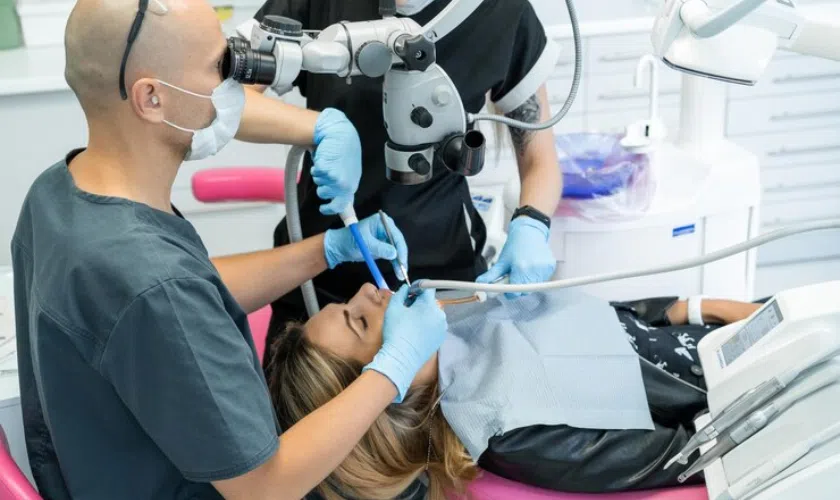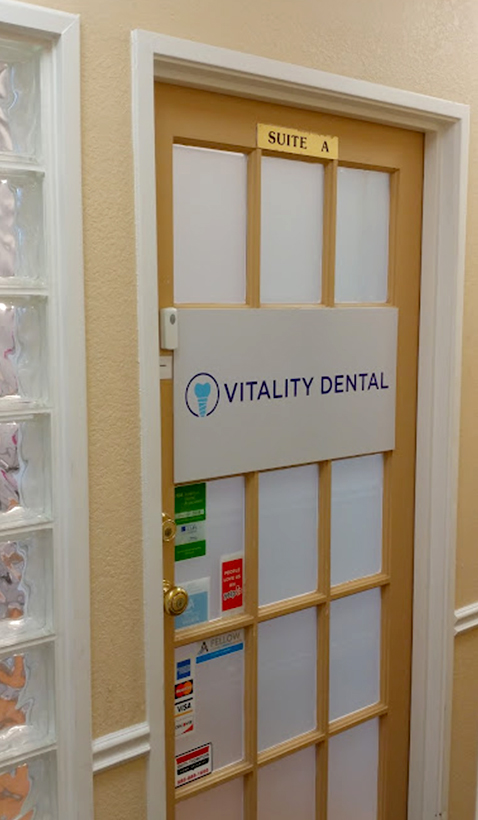
Before Your Next Teeth Cleaning – 10 Foods to Eat (and 5 to Avoid!)



You’ve got your dental appointment coming up, and while you may be focusing on flossing diligently, there’s another aspect of your oral health worth considering – your diet. What you eat plays a significant role in the health of your teeth and gums. As you gear up for your next teeth cleaning, let’s explore ten tooth-friendly foods that can enhance your oral health and five that might not be the best choices.
Foods to eat
Some foods are essential for your dental health
Crunchy Vegetables: The Natural Toothbrush
Start your journey after teeth cleaning with crunchy vegetables. Carrots, celery, and bell peppers act like nature’s toothbrush, helping to remove plaque and stimulate saliva production. The increased saliva flow aids in neutralizing acids and promoting an environment that fights cavities.
Dairy Delights: Calcium for Strong Teeth
Milk, cheese, and yogurt are not just delicious; they’re also packed with calcium, a mineral crucial for maintaining strong teeth and bones. Calcium helps fortify tooth enamel, making it more resistant to decay. So, include these dairy delights in your diet for a tooth-friendly calcium boost.
Green Tea: Oral Health Elixir
Swap your regular cup of tea or coffee for green tea. Green tea is rich in antioxidants called catechins, which have anti-inflammatory and anti-bacterial properties. These properties can help fight bacteria in your mouth, reducing the risk of cavities and gum disease. It’s a refreshing choice that benefits your teeth.
Nuts and Seeds: Tiny Packages of Dental Health
Snack on nuts and seeds to give your teeth a healthy treat. Almonds, cashews, and sunflower seeds are rich in calcium and phosphorus, essential minerals for maintaining tooth enamel. Additionally, the act of chewing nuts stimulates saliva production, aiding in the natural cleansing of your mouth.
Apples: Nature’s Toothbrush with a Sweet Crunch
An apple a day not only keeps the doctor away but also contributes to good oral health. Apples have a high water content, which helps dilute the effects of sugars and stimulates saliva production. The natural fibers in apples also act as a gentle abrasive, helping to remove plaque and debris from your teeth.

Water: The Ultimate Hydrator for Your Smile
Staying hydrated is crucial for overall health, including oral health. Water helps rinse away food particles, bacteria, and acids that can lead to cavities and gum disease. Make water your beverage of choice, especially after meals, to keep your mouth clean and your teeth happy.
Fish Rich in Omega-3 Fatty Acids: A Boost for Gums
Include fatty fish like salmon and mackerel in your diet to benefit from omega-3 fatty acids. These essential fats have anti-inflammatory properties, which can help reduce the risk of gum disease. Maintaining healthy gums is a key component of overall oral health, so don’t skip the fish in your quest for a brighter smile.
Strawberries: Vitamin C for Gum Health
Sweet, juicy strawberries aren’t just a delicious treat; they’re also rich in vitamin C. This vitamin is essential for collagen production, which is crucial for maintaining the strength and integrity of your gums. Including strawberries in your diet can contribute to healthier gums and overall improved oral health.
Lean Proteins: Building Blocks for Strong Teeth
Lean proteins like chicken, turkey, and eggs are rich in phosphorus, a mineral that plays a vital role in tooth development and maintenance. Phosphorus works in tandem with calcium to keep tooth enamel strong and resilient. Make these protein sources a regular part of your diet for a smile that’s built to last.
Sugar-Free Gum: Chewing Your Way to a Healthier Smile
If you enjoy chewing gum, opt for sugar-free varieties. Chewing gum stimulates saliva production, which helps neutralize acids, clean the mouth, and strengthen tooth enamel. Look for gums sweetened with xylitol, a sugar substitute known for its cavity-fighting properties.
Foods to Avoid
While some foods promote oral health, others can pose risks to your teeth. Here are five to be mindful of:
Sugary Treats: The Enemy of Tooth Enamel
Excessive sugar consumption is a known culprit in tooth decay. Candies, sodas, and sugary snacks feed the bacteria in your mouth, leading to the production of acids that erode tooth enamel. Dentists in Plano, TX, encourage you to limit your intake of sugary treats to protect your pearly whites.
Citrus Fruits: Acidic Culprits
While fruits like oranges and lemons are rich in vitamin C, their high acidity can erode tooth enamel over time. Enjoy these fruits in moderation and rinse your mouth with water afterward to help neutralize acids.
Sticky Snacks: A Challenge for Your Teeth
Caramel, toffees, and other sticky snacks cling to your teeth, providing a feast for bacteria. The longer these sugary substances remain in your mouth, the higher the risk of cavities. Choose crunchy snacks over sticky ones for a tooth-friendly alternative.
Carbonated Drinks: Fizz with a Side of Trouble
Sodas and other carbonated drinks not only contain sugar but also carbonic acid, which can weaken tooth enamel. Opt for water or herbal teas instead to keep your teeth strong and healthy.
Starchy Foods: Watch Out for the Hidden Sugars
Chips, crackers, and other starchy snacks often contain hidden sugars that can contribute to tooth decay. The sticky texture of some starchy foods can also cling to your teeth, providing a breeding ground for bacteria. Choose whole grains over processed snacks for a healthier option.
As your dental appointment approaches with dentists in Plano, TX, remember that oral health goes beyond brushing and flossing. Embrace a diet rich in tooth-friendly foods like crunchy vegetables, dairy, green tea, and nuts while being mindful of the potential risks associated with sugary, acidic, and sticky snacks. Here’s to a brighter, healthier smile!








